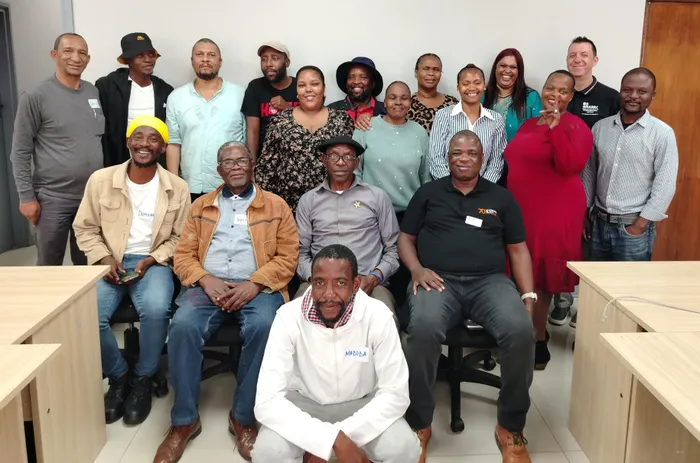
The Msunduzi Association of Residents, Ratepayers and Civics (MARRC) in partnership with Black Sash, hosted a training workshop for MARRC members on data gathering in Pietermaritzburg.
Image: Supplied
Shifting the narrative and holding the Msunduzi Municipality to account through citizen-led initiatives was one of the key aims at a workshop for ratepayers in Pietermaritzburg recently.
Evashnee Naidu, KwaZulu-Natal regional manager of Black Sash, a South African organisation advocating for social justice and the rights of vulnerable communities, explained that the workshop focused on data gathering and capture: tools for evidence-based advocacy. Naidu added that residents of Msunduzi shared their experiences and challenges.
“They were enthusiastic about the tools shared by Black Sash, hoping that this could lead to shifting the narrative and to make human rights real,” she said.
The workshop was in collaboration with the Msunduzi Association of Residents, Ratepayers and Civics (MARRC).
Anthony Waldhausen, the CEO of MARRC, added that the focus of the workshop was to understand how to gather real-time data, which can be used as evidence to hold power to account and to make public participation a reality.
“The training looked at the process of collecting information to analyse, understand, or solve a specific problem. It involves various methods such as surveys, interviews, experiments, observations, or even automated techniques like web scraping,” he explained.
The purpose is to obtain accurate and relevant data that can be used for research, decision-making, or improving processes, he said.
Waldhausen said that an important focus of the training was on Community-Based Monitoring (CBM), which allows civil society to gather and analyse information from the service users’ points of view.
“It recognises that communities, citizens, and public service users are active holders of fundamental rights and not merely passive users of public services. As a result, monitoring provides strong evidence to take back to the government and, where necessary, into the public domain, to improve the delivery of services where needed and to acknowledge good service where it is provided,” he explained.
Waldhausen said that the goal is to promote civic engagement to realise socio-economic rights by advocating for open, transparent, and accountable local government.
He said the workshop also touched on the Protection of Personal Information Act (POPIA), all forms of data gathering tools, and how to build a portfolio of evidence.
Waldhausen said that the training on data gathering and capture was to upskill ratepayers on how they could capture data from the communities that can be used to build evidence and understanding of the community issues.
He said the training is part of MARRC’s capacity-building efforts to develop ratepayer association skills and knowledge on local government and develop tools to capture evidence and information.
“This will assist us to use the data to contribute towards the Integrated Development Plan and budgeting processes, and service delivery issues. The data collected will also be used to hold our municipality accountable,” he added.
zainul.dawood@inl.co.za
Related Topics: